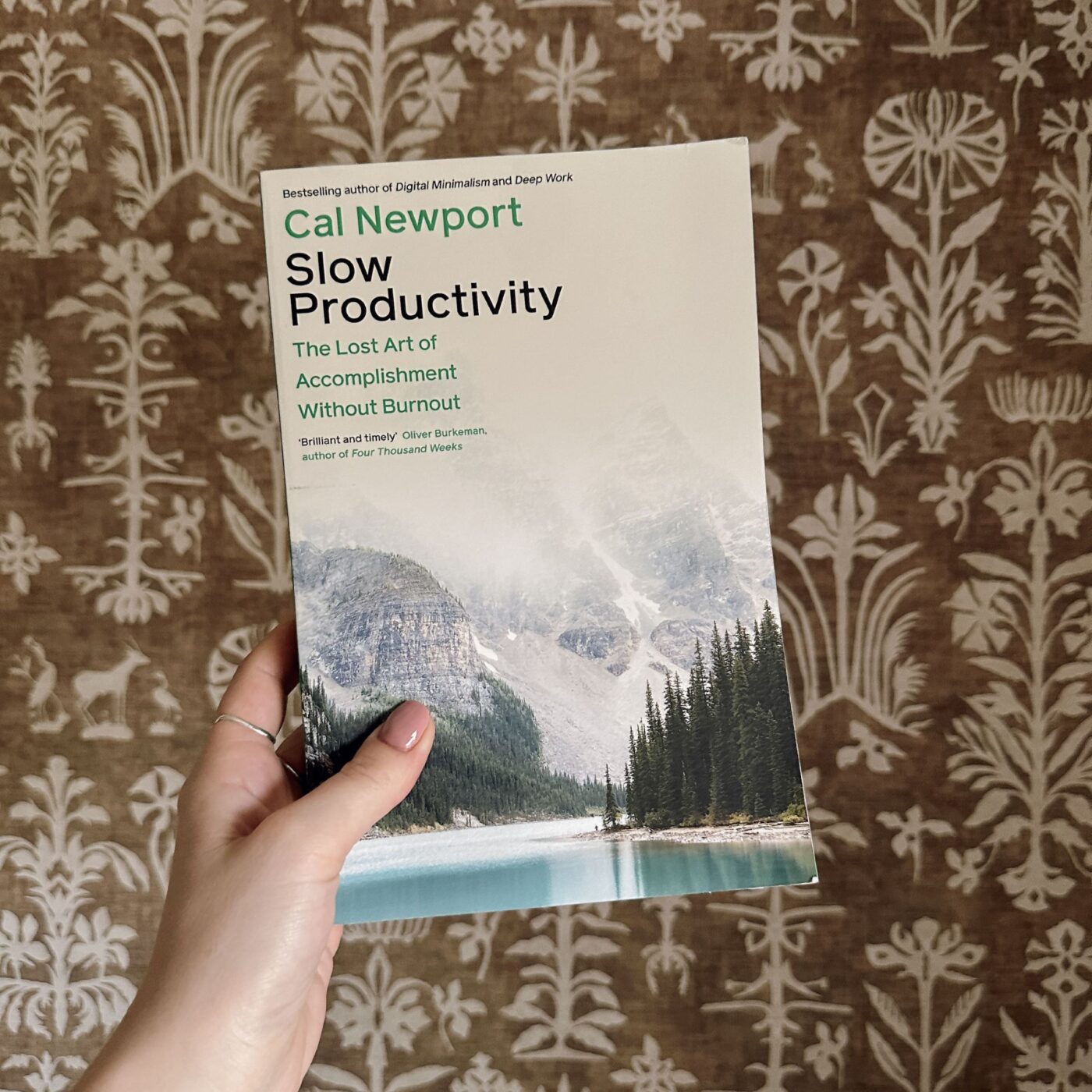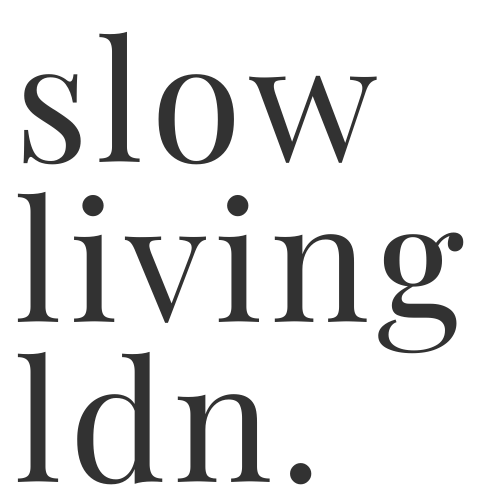You have no items in your cart. Want to get some nice things?
Go shopping
Welcome back to the fifth installment of the Slow Living LDN. book club, a carefully curated source of inspiration which shares the stories and learnings of those who have sought to adopt a slower, more considered lifestyle.
In our fast-paced world, where technology and demands of modern life can leave us feeling overwhelmed and burned out, the Slow Living LDN. book club invites you to take a breath, savour the moment, and explore the values and concepts of slow and seasonal living through the pages of thoughtfully selected books.
Every month, we’re excited to share a book with you that reflects these values. Each primarily non-fiction title explores different perspectives and narratives on slow and seasonal living, aiming to show how a more intentional lifestyle can improve our well-being and strengthen our bond with ourselves and the world around us.
Whether you’re already exploring the slow living movement or are keen to hear inspiration from those who have pressed the pause button themselves, the Slow Living LDN. book club welcomes you to join us as we share the power that lies within the embrace of a slower, more meaningful lifestyle.
This article may include affiliate links, but these do not influence our editorial.
Book 5: Slow Productivity: The Lost Art of Accomplishment without Burnout by Cal Newport
Published in March 2024, Slow Productivity: The Lost Art of Accomplishment without Burnout is one of the latest titles to draw upon the slow movement in its critique of our obsession with pace. It’s written by Cal Newport, a computer science professor educated at MIT, celebrated for his books such as Digital Minimalism and Deep Work. Newport’s chosen field explores the intersection of work, technology and the pursuit of meaning ‘in an increasingly distracted world’.
Slow Productivity is a well-written and engaging response to the “relentless overload” knowledge workers (employees or freelancers with significant autonomy over how they use their time, typically desk workers, creatives and intellectuals) find themselves facing due to the mismeasurement of productivity with ‘busyness’.
Newport explains how the concept of productivity was first used in relation to agriculture and the yield of a certain area of land, before being applied to the hourly production rate of factories. Today, Newport observes, there is no single output to track in the knowledge work sector, meaning “using visible activity as a crude proxy for actual productivity” has become the norm. This ‘pseudo-productivity’, coupled with tech advancements such as Slack, leaves knowledge workers feeling overwhelmed, burned out and distracted.
Newport offers three principles of adopting an alternative approach to achievement and knowledge work. From music artists to writers, each principle is supported by examples of knowledge workers who have sought a more natural pace and focused on the quality of their output. This is in addition to ‘interludes’ or critiques of the ideas presented, encouraging the reader to form their own thoughts.
Newport is realistic in his commentary, too. He recognises that within the knowledge work sector, different roles afford different levels of autonomy over one’s time, but his tips for seeking a more sustainable relationship with work read as practical and achievable.
Previous Slow Living LDN. book club reads:
- Book 1: Slow Seasons by Rosie Steer
- Book 2: Pace Yourself by Amy Arthur
- Book 3: Slow by Brooke McAlary
- Book 4: In Praise of Slowness by Carl Honoré
Reasons to read Slow Productivity by Cal Newport
You’re probably familiar with the phrase ‘work smarter, not harder’. Newport’s three principles for adopting slow productivity support this rejection of busywork, but also crucially reassign the correct amount of time to important work. That’s the work that creates progress and drives our passions. Giving the things that truly matter our time and the luxury of our attention is a theme that runs throughout the wider slow movement.
Newport’s eloquent commentary on the state of the modern knowledge work sector goes beyond strategies to ‘cope’ with work, inspiring those who have the autonomy and freedom to build towards their professional goals in a slow and steady manner.
“Slow productivity emphatically rejects the performative rewards of unwavering urgency. There will always be more work to do. You should give your efforts the breathing room and respect required to make them part of a life well lived, not an obstacle to it.”
Slow Productivity, Cal Newport
If you’re exploring slow living to tame your relationship with work and build towards the goals that truly matter to you in a considered way, Slow Productivity is an informative, inspiring and thoroughly engaging read.
Quotes from Slow Productivity by Cal Newport
We’ve added some new additions to our curated list of slow living quotes after reading Slow Productivity. Here are a few highlights:
- “This (slow productivity) philosophy rejects busyness, seeing overload as an obstacle to producing results that matter, not a badge of pride.”
- “To embrace slow productivity, in other words, is to reorient your work to be a source of meaning instead of overwhelm, while still maintaining the ability to produce valuable output.”
- “Slow productivity supports legacy-building accomplishments but allows them to unfold at a more human speed.”
- “Don’t rush your most important work. Allow it instead to unfold along a sustainable timeline, with variations in intensity, in settings conducive to brilliance.”
- “It’s in the obsession over what you’re producing that slowness that can transcend its role as just one more strategy on the arid battlegrounds of work-life wars and become a necessary imperative – an engine that drives a meaningful professional life.”
- “Slowing down isn’t about protesting work. It’s instead about finding a better way to do it.”
Slow Productivity is available from major booksellers such as Waterstones. Originally published in March 2024. We also recommend Newport’s title Digital Minimalism.
For more inspiration, see our list of slow living books.
